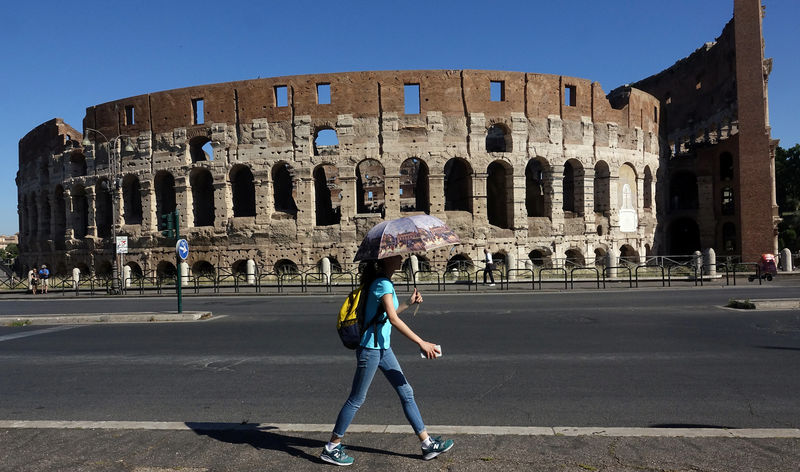ROME (Reuters) - An Italian court struck down government changes to the management of the Colosseum on Wednesday, siding with Rome's anti-establishment mayor in a tussle over the amphitheatre where gladiators clashed 2,000 years ago.
In a bid to better manage the arena, which attracts more than 6 million visitors a year, the culture ministry declared in January it would become the centrepiece of a new archaeological site, managed separately from the city's other attractions.
But city hall, run by the 5-Star Movement, attacked the idea of spinning off the capital's open air museum, bristled at proposed changes to handling revenue, and appealed to the regional administrative court to block it.
After the court upheld 5-Star's complaint on Wednesday, Rome Mayor Virginia Raggi tweeted, "The citizens have won ... Government attempt defeated. Rome still belongs to everyone."
Culture Minister Dario Franceschini, a member of the governing Democratic Party, said he would oppose the ruling. It was the second in two weeks to shoot down parts of a sweeping reform he began in 2014 to modernise and make more money out of Italy's vast cultural heritage.
The plan for the Colosseum and nearby Roman Forum included hiring a new director through an international search similar to one through which 20 other directors were hired last year, but which the court partly overruled last month.
Franceschini says his changes to Italy's network of 400 state museums, some of which are also on its list of 51 UNESCO World Heritage sites, have borne fruit, with ticket revenue rising 12 percent last year to 172 million euros (149.52 million pounds).
However, one of 5-Star's objections to the Colosseum plan was that it only guaranteed local authorities 30 percent of the park's roughly 35 million euros in net annual ticket sales, compared with 80 percent under the previous management.
Franceschini furiously rebutted that, saying the new structure would still mean Rome kept all revenue apart from a 20 percent cut taken from all big sites to help fund smaller ones.

Despite rising revenue, Italy still earns less from its cultural wealth than European peers like France - whose Louvre museum alone rakes in 100 million euros a year - a situation long blamed on inefficiency and poor management.